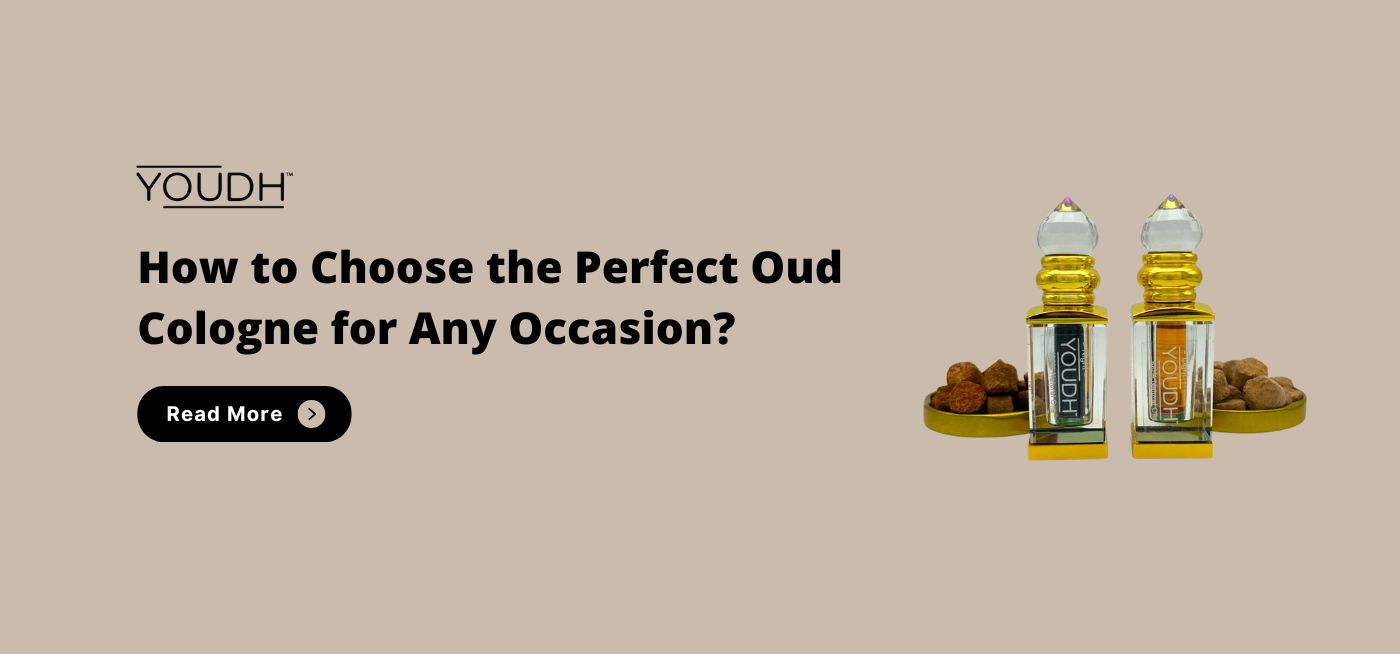
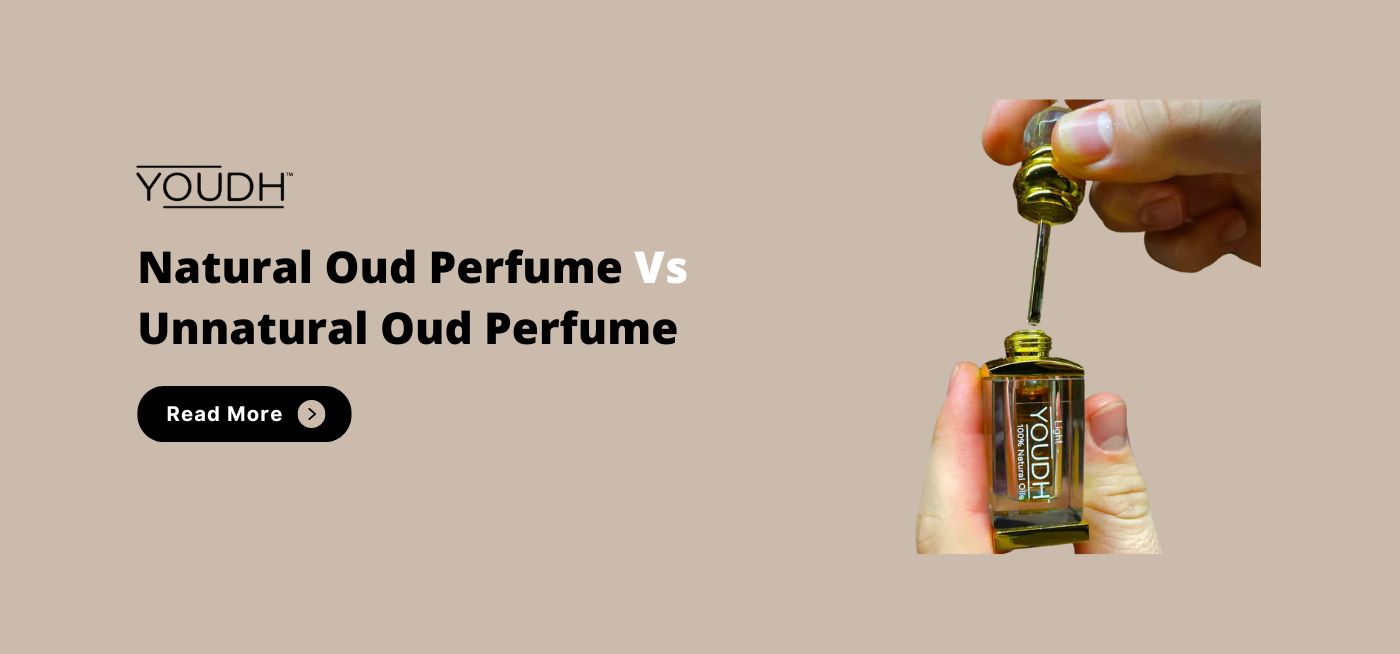
The best way to distinguish natural perfume oud oil from unnatural perfume oils in as much detail as possible Natural perfume oils are becoming increasingly popular in recent years due to their various benefits over the use of synthetic ones. The question of how to distinguish between natural and unnatural perfume oils, however, remains a mystery to many who are not familiar with all the techniques involved. Natural perfume oils are extracted directly from sources such as flowers, leaves, resins, and other plant parts through a process known as distillation. They do not contain any synthetic ingredients, additives, or preservatives. Unnatural perfume oils, on the other hand, are manufactured artificially in a laboratory and can contain a mixture of synthetic chemicals that are designed to replicate the scent of natural sources.
One of the easiest and most common ways to distinguish between natural and unnatural oud perfume oils is to look at the label. A natural perfume oil will typically list its ingredients as a specific plant source, such as rose or lavender. An unnatural perfume oil, on the other hand, may list ingredients such as “fragrance,” “parfum,” or “perfume oil,” indicating that it has been chemically manufactured. Another method for distinguishing between natural and unnatural perfume oils is to examine their scent, texture, and color. Natural perfume oils often have a more complex scent profile that is difficult to replicate in an artificial mixture. They also tend to have a more variable texture and color depending on the specific source of the oil. Unnatural perfume oils, in contrast, may have a more uniform scent, texture, and color due to their chemical composition. A more technical method for distinguishing between natural and unnatural perfume oils involves the use of gas chromatography and mass spectrometry. This scientific technique involves analyzing the volatile compounds present in a sample of the perfume oil, allowing for the identification of specific compounds and their quantities.
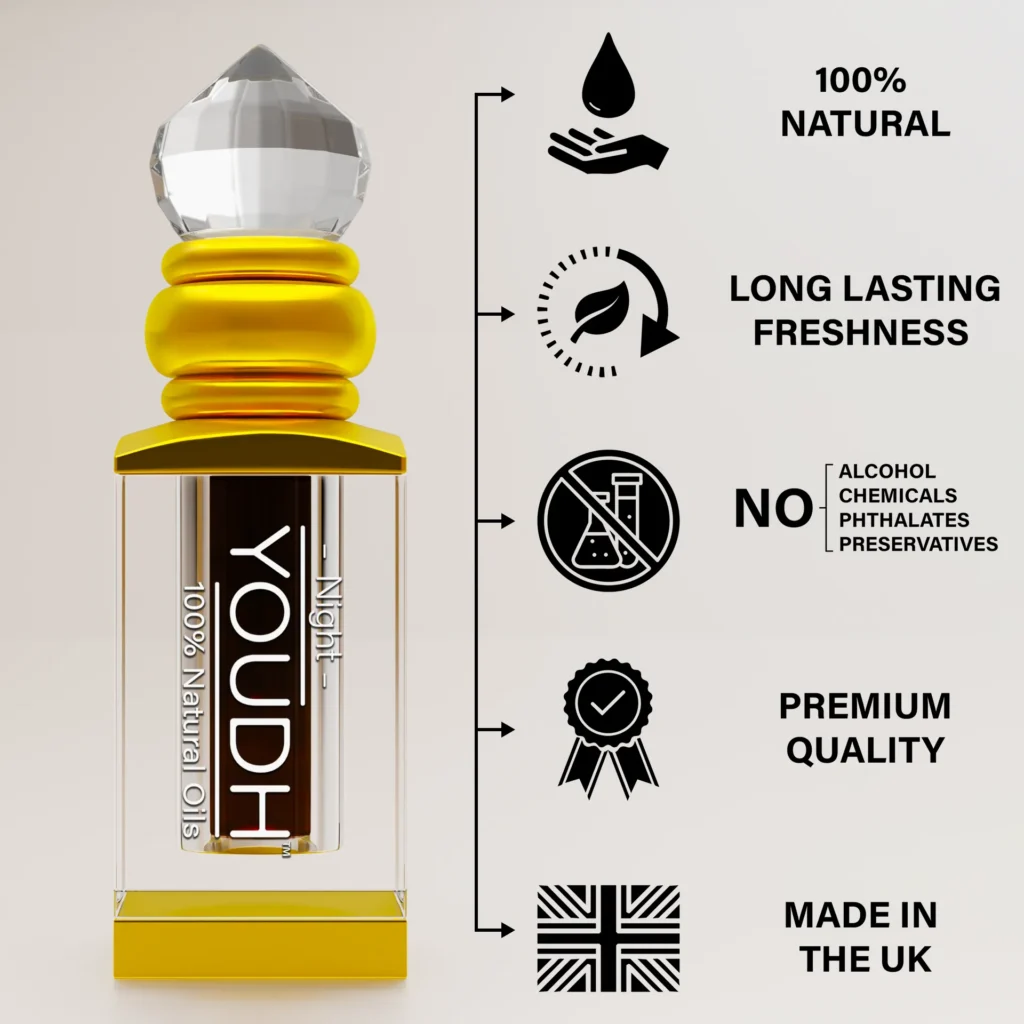
While this method is highly accurate, it is not typically accessible to the average consumer. In conclusion, there are various methods for distinguishing between natural and unnatural perfume oils, including examining the label, examining the oud scent, texture, and color, and using scientific techniques. By selecting natural perfume oils, individuals can enjoy the benefits of a sustainable and environmentally friendly product that provides a more healthy, complex and authentic scent experience.
The side effects on the skin from using alcohol-based perfume When it comes to fragrances and colognes, many people enjoy the feeling of smelling nice and fresh throughout the day. However, alcohol-based perfumes can come with some unwanted side effects on the skin. For starters, alcohol is a highly drying agent. When applied to the skin, it can strip away the natural oils that help to keep the skin moisturized and protected from environmental stressors. This can lead to dry, flaky, and irritated skin. Alcohol-based perfumes can also cause an allergic reaction on the skin. Some people may experience redness, itching, and even small blisters after coming into contact with certain fragrances. This is known as contact dermatitis and can be quite uncomfortable. In addition, alcohol-based perfumes can also cause sun sensitivity. When applied to the skin and exposed to sunlight, it can increase the risk of sunburn and damage from UV rays. Overall, while alcohol-based perfumes may smell nice, it’s important to be mindful of the potential side effects they can have on the skin. Opting for alcohol-free or lightly scented alternatives may be a better option for those with sensitive skin or those who want to avoid potential skin irritation. Taking a break from perfumes and using natural alternatives can help reduce the risk of allergies and eliminate confusion between allergies caused by natural products and those caused by unnatural ones.
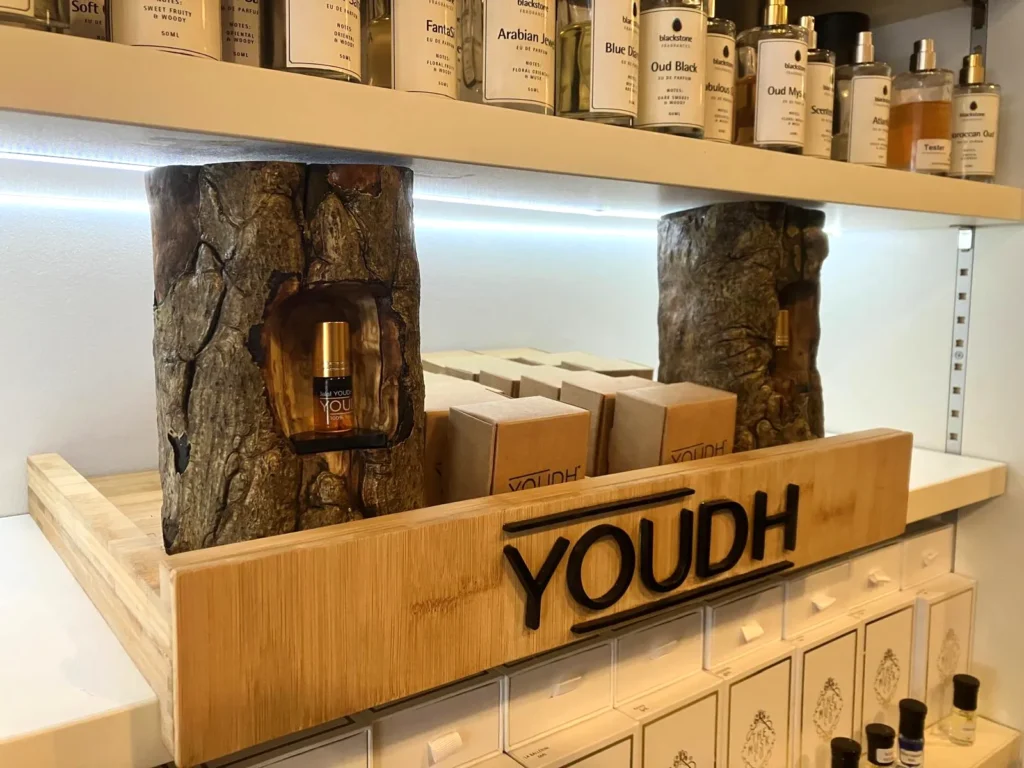
Perfume oils have long been used to create pleasant fragrances that attract others. Unfortunately for some, these oils may not be the most suitable option, leading to allergies and other related problems. While some people are fortunate enough never to experience any allergies, other people may find that their immune systems are especially sensitive to the chemicals used in synthetic perfumes. This can result from prolonged exposure to these unnatural products that disrupt the body’s immunity. Perfume oils are created from synthetic chemicals that have been scientifically engineered to mimic the aroma of natural substances such as flowers, spices, and fruits. They have been designed to smell pleasant, and they are often used in various beauty and hygiene products to make them more alluring to consumers. However, the unnatural makeup of these oil perfumes can make them harmful to some people’s bodies and homes, causing an allergic reaction when inhaled or come into contact with the skin. Most perfumes contain a mix of natural oils and synthetic chemicals.

The synthetic chemicals present in perfumes such as phthalates, aldehydes, benzyl salicylate, and methyl benzoate are capable of triggering adverse reactions in the body’s immune system. This is because once these chemicals are inhaled or come into contact with the skin, the body sees them as foreign substances that need to be eliminated. As a result, the immune system goes into overdrive, and an allergic reaction occurs. However, some people may experience allergies to natural products used as scents. This is because exposure to synthetic perfumes may damage the body’s immunity system, leading to it becoming susceptible to other unnatural products, such as ingredients in food and natural perfume oils. This is because the prolonged and frequent exposure to synthetic perfumes can irritate and damage the immune system, leading to it being more sensitive to allergens, both natural and unnatural. In essence, allergies caused by perfume oils are normal because they are unnatural products that contain synthetic chemicals that can trigger an allergic reaction in some people. However, allergies caused by natural products may be a result of prolonged exposure to unnatural perfumes, which damage the body’s immune system, leading to it becoming overreactive and sensitive to all kinds of allergens, natural or unnatural.
Both unnatural perfumes and perfume oils typically contain synthetic fragrances that are created in a laboratory using chemical compounds. These compounds may be derived from petroleum or other sources, and they are often designed to mimic the scent of natural ingredients. However, these synthetic fragrances are often less complex and nuanced than their natural counterparts, and they may have negative health effects. In addition, many unnatural perfumes and perfume oils contain other synthetic ingredients like preservatives, stabilizers, and UV protectants. These ingredients can be harmful to both human health and the environment, and they may cause allergic reactions or skin irritation.
When you choose natural perfumes and perfume oils, you are choosing fragrances that are made using only natural ingredients like essential oils, plant extracts, and resins. These fragrances are often more complex and layered than synthetic fragrances, and they are thought to have therapeutic properties as well. Natural fragrances are more sustainable and eco-friendlier than synthetic fragrances, as they are typically produced using sustainable farming methods and use less energy and fewer resources in production. Choosing natural perfumes and perfume oils is a healthier and more responsible choice for both you and the planet.
Perfume oils are concentrated fragrances that are typically composed of a blend of essential oils, absolutes, and carrier oils such as jojoba or coconut oil. They are often natural or plant-based and do not contain alcohol. As a result, they tend to be longer-lasting on the skin and are often considered more gentle and nourishing for the skin. Alcohol-based perfumes, on the other hand, typically contain a higher percentage of synthetic fragrances and alcohol. They tend to have a stronger scent initially but can fade more quickly. Alcohol can also be drying to the skin, which can make the scent last even less. As for phthalates, these are a type of chemical commonly added to perfumes and other personal care products to help the scent last longer. However, phthalates have been linked to a variety of negative health impacts. Some of the dangers of phthalates in perfumes include:
Synthetic aroma chemicals refer to man-made compounds that mimic the fragrance of natural substances. These chemicals are widely used in a range of everyday products including perfumes, cosmetics, detergents, and air fresheners. The use of synthetic aroma chemicals has become increasingly popular due to their lower cost, greater consistency, and wider availability compared to natural aroma chemicals. Many synthetic aroma chemicals found in consumer products have been approved by regulatory bodies for their safety and are unlikely to cause harm in the concentrations used. However, there are concerns that prolonged exposure to high concentrations of some synthetic aroma chemicals may lead to health problems. For example, some studies have linked certain synthetic fragrance chemicals to respiratory and neurological problems, as well as hormone disruption. On the other hand, natural aroma chemicals are compounds that are extracted from natural sources such as plants and fruits. Some examples of natural aroma chemicals include lavender, peppermint, and citrus oils.
Natural aroma chemicals are often preferred by consumers who are concerned about using synthetic chemicals in their everyday products. In terms of health advantages, natural aroma chemicals have a number of benefits over their synthetic counterparts. For example, natural aroma chemicals are biodegradable and do not accumulate in the environment. They also tend to have a more complex and nuanced fragrance profile compared to synthetic aroma chemicals, which can enhance the sensory experience of using natural products. Furthermore, natural aroma chemicals are associated with a range of therapeutic benefits. For example, lavender oil has been found to promote relaxation and relieve anxiety, while peppermint oil is used to alleviate headaches and improve concentration.
While synthetic aroma chemicals are widely used in the market, some consumers prefer natural aroma chemicals due to their perceived health benefits and environmental friendliness. It is important for consumers to carefully evaluate the ingredients in their everyday products and make informed choices based on their individual preferences and values.

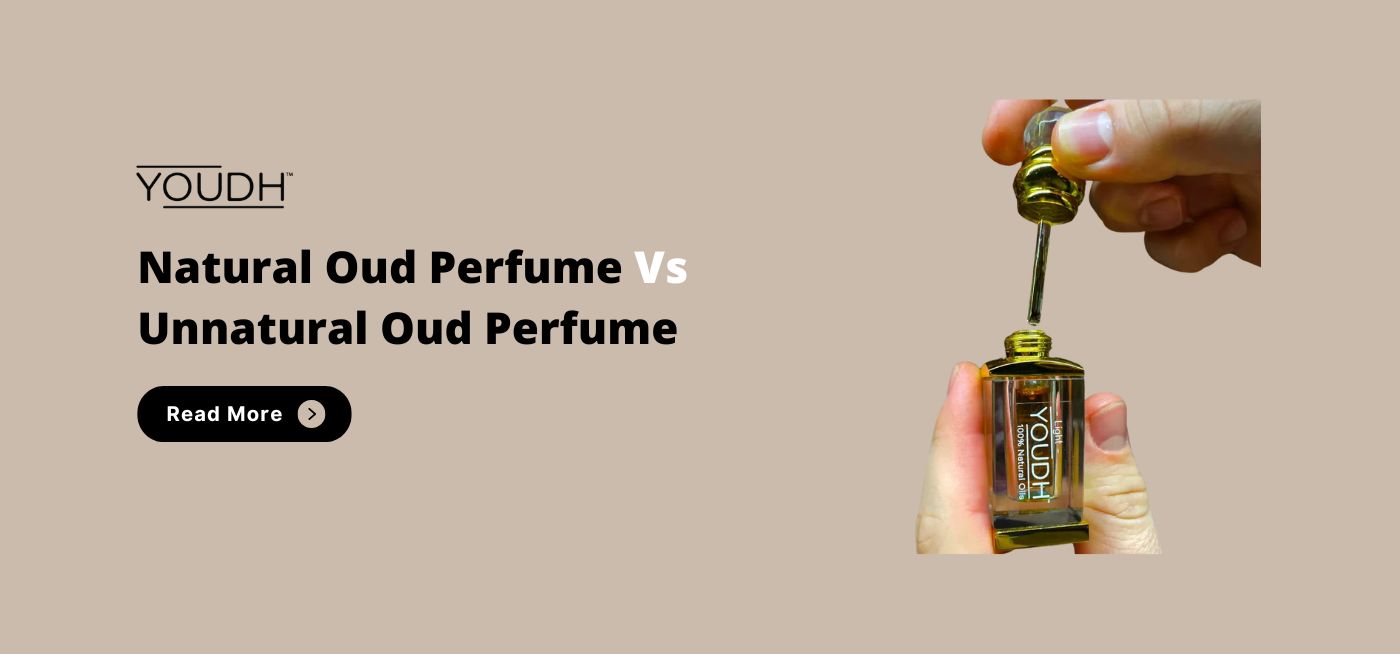
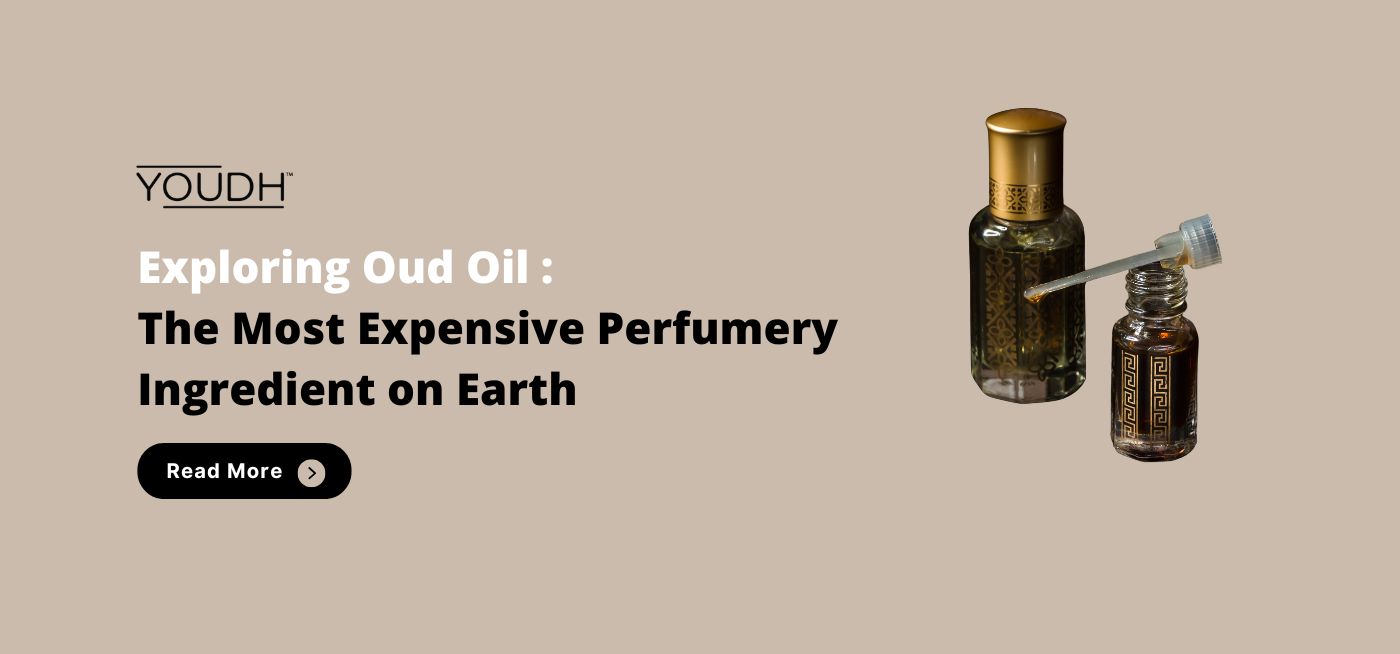
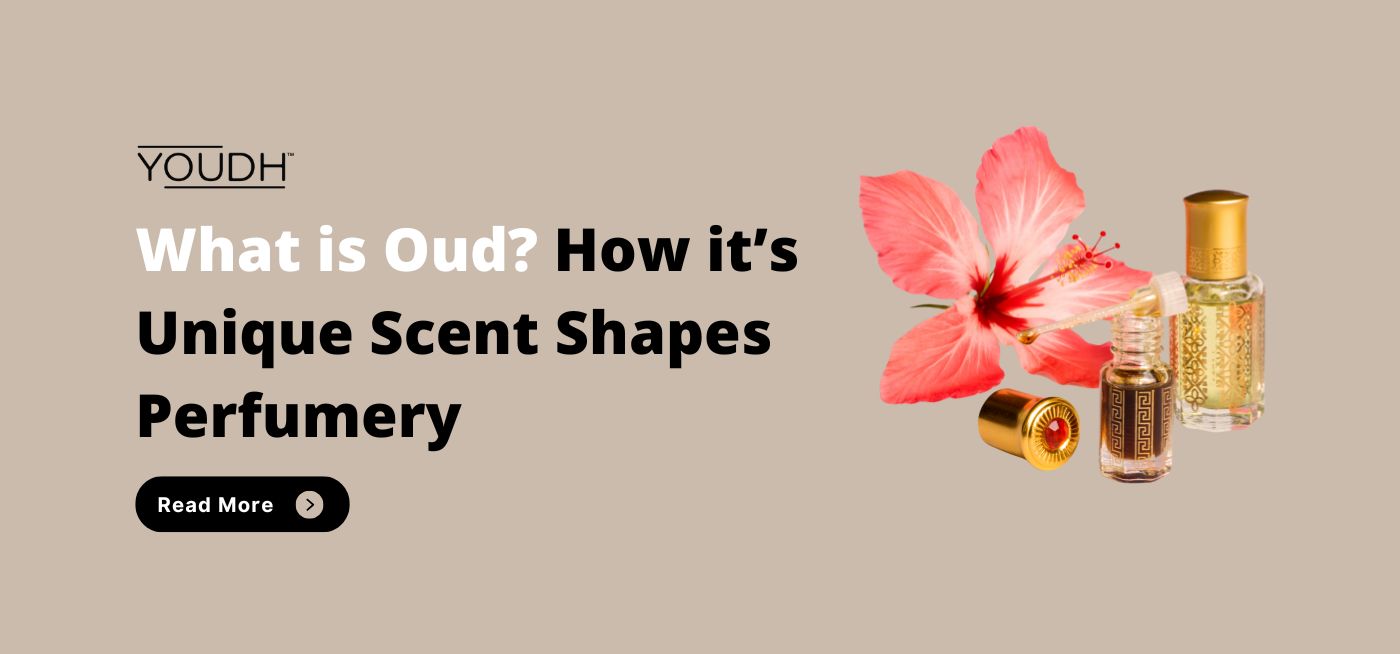
Oud perfume is a premium fragrance with a rich, smoky, and woody aroma derived from agarwood resin. Unlike synthetic fragrances, natural oud develops over decades as the agarwood tree produces resin to heal itself. This rare process creates a scent that’s complex, long-lasting, and deeply tied to cultural heritage.
Oud perfume stands out due to its rarity and the intricate process of its creation. Only a small percentage of aquilaria trees produce the resinous wood needed for oud, making it one of the most expensive ingredients in perfumery. Its scent is a unique blend of wood, spice, and sweetness, with each batch offering a slightly different profile, adding to its allure.
Creating genuine oud perfume is an art that requires patience and expertise. It starts with the infection of the aquilaria tree by a specific mold, which triggers resin production. This wood is harvested, often from trees that are decades old, then distilled to extract the oil, a process that can take days and requires precise control. The oil is aged to develop its full aroma before being used in perfumes, ensuring high quality.
Natural oud perfume is a labour of love. It takes 20–30 years for agarwood trees to produce resin, and extraction requires meticulous craftsmanship. Synthetic oud, made from lab-created chemicals like phthalates, skips this process—and sacrifices your health, authenticity, depth, and sustainability.
Synthetic oud perfumes often contain allergens like benzyl salicylate. Natural oud, however, rarely irritates skin. Pro tip: If you’ve developed fragrance allergies, switching to natural oud may help reset your immune response over time.
Alcohol dries skin and fades scents faster. Alcohol-free oud oils last 8–12 hours, cling to pulse points, and double as skincare. Our collection at Youdh.co.uk focuses on healthy, luxurious, alcohol-free blends for lasting elegance.
Many synthetic oud perfumes contain phthalates, linked to hormone disruption and environmental harm. Natural oud is biodegradable and free of toxins—making it safer for your body and the planet.
How Long Does natural Oud Perfume Last on the Skin?
High-quality oud perfumes can last 8-12 hours or longer, depending on the skin’s PH values, method of application and weather. This longevity makes it ideal for special occasions or daily wear for fragrance enthusiasts.
Natural oud supports sustainable agarwood farming, which protects forests and empowers communities. Synthetic oud relies on petroleum-based chemicals, contributing to pollution. By choosing ethical oud, you invest in eco-conscious luxury.
Yes, oud perfume is unisex and appeals to both men and women. Its sophisticated and complex scent is versatile, used in fragrances for all genders, making it perfect for anyone looking for a statement fragrance.
Oud perfumes are marketed and sold with varying quality grades:
Look for reputable sellers, check for certifications, and be wary of low prices – authentic oud is costly. The scent should be complex and long-lasting; synthetic versions may lack depth. Consult experts or read verified reviews for assurance. If you’re unsure if an advertised oud product is authentic, you can contact us at: [email protected] and we will try out best to verify its quality.
Oud perfume is perfect for evening events, formal occasions, or making a statement. Its rich scent suits cooler months but can be worn year-round, adding elegance to weddings, dinners, or nights out
Absolutely. Oud offers a unique experience with longevity, complexity, and status, making it a cost-effective luxury over time. A single bottle can last months, justifying the price for fragrance lovers.
At YOUDH™, we pride ourselves with 100% Natural, Non-Allergen, Non-Hormone Disrupting Premium grade oud fragrance oils (oudh). YOUDH™ will never sacrifice purity for profit.
Copyright © 2025 | YOUDH™ | All Rights Reserved | Developed By Invisio Solutions Ltd